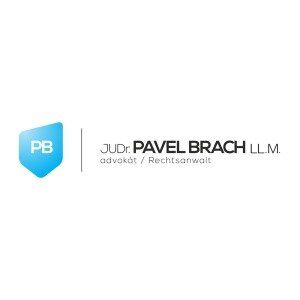Best Nonprofit & Charitable Organizations Lawyers in Prague
Share your needs with us, get contacted by law firms.
Free. Takes 2 min.
List of the best lawyers in Prague, Czechia
About Nonprofit & Charitable Organizations Law in Prague, Czechia
Nonprofit and charitable organizations in Prague, Czechia, play a crucial role in various societal domains, such as education, health, welfare, and the arts. These organizations are typically established as associations, foundations, or social cooperatives under Czech law. The legal framework governing these entities ensures they operate in a manner that aligns with the public interest and fulfill their missions. The primary focus is on regulation concerning their formation, operation, financial transparency, taxation, and compliance with public benefit status requirements.
Why You May Need a Lawyer
Individuals or groups seeking to establish or operate nonprofit and charitable organizations in Prague may encounter several legal challenges. Common situations requiring legal assistance include navigating the complex process of registration, ensuring compliance with tax obligations, drafting bylaws and governance documents, handling employment law issues, and managing relationships with donors and beneficiaries. Lawyers specializing in this field can provide valuable guidance, particularly when dealing with legal disputes, audits, or regulatory inquiries.
Local Laws Overview
The Czech nonprofit sector is primarily regulated by the Civil Code and the Act on Public Benefit Organizations. Key aspects include the necessity for organizations to register with the competent court, adhere to strict accounting and reporting standards, and fulfill specific criteria to qualify for public benefit status. Organizations must be transparent and accountable, ensuring that their activities align with declared nonprofit purposes and that assets are used exclusively for these purposes. Tax exemptions and benefits are available, but eligibility requires meticulous compliance with applicable laws.
Frequently Asked Questions
What are the legal forms for nonprofits in Prague?
Nonprofits can take several forms in Prague, including civic associations, foundations, and public benefit corporations.
How can a nonprofit gain public benefit status?
An organization must demonstrate that it operates in the public interest and satisfies specific criteria outlined in the Public Benefit Organizations Act.
Are there any tax benefits for nonprofits?
Yes, qualifying nonprofits can benefit from various tax exemptions and deductions, but they must meet the criteria defined by Czech tax authorities.
What is the process for registering a nonprofit?
Registration involves submitting necessary documents to the Regional Court. This includes statutes of the organization, details of founders, and evidence of meeting all legal requirements.
Can a nonprofit employ staff?
Yes, nonprofits can hire employees, but they must comply with Czech labor laws, including employment contracts, salary regulations, and social security contributions.
What financial reporting is required?
Nonprofits must keep accurate financial records and submit annual financial statements to relevant authorities to ensure transparency and accountability.
How can conflicts within nonprofit management be resolved?
Conflicts can be resolved through mediation, arbitration, or legal proceedings, depending on the severity and nature of the dispute.
What happens if a nonprofit dissolves?
Upon dissolution, remaining assets must be distributed according to the organization’s statutes and in compliance with the law, often benefitting another nonprofit cause.
Do nonprofits need special insurance?
It isn’t legally required, but having insurance to cover potential liabilities, property, or employee-related issues is advisable.
Are international donations subject to specific regulations?
Yes, donations from abroad must be reported, and nonprofits must comply with international investment and donation laws.
Additional Resources
For further assistance and information, individuals can consult the Ministry of Interior or the Association of Public Benefit Organizations (AVPO). The Czech government also provides guidance through the Department for NGOs.
Next Steps
If you need legal assistance, consider consulting a lawyer specializing in nonprofit law. They can provide personalized advice tailored to your organization's specific circumstances. Start by preparing detailed documentation of your organization’s structure, financial status, and intentions. Schedule a meeting with a legal expert to discuss your needs and ensure your organization remains in compliance with all applicable laws.
Lawzana helps you find the best lawyers and law firms in Prague through a curated and pre-screened list of qualified legal professionals. Our platform offers rankings and detailed profiles of attorneys and law firms, allowing you to compare based on practice areas, including Nonprofit & Charitable Organizations, experience, and client feedback.
Each profile includes a description of the firm's areas of practice, client reviews, team members and partners, year of establishment, spoken languages, office locations, contact information, social media presence, and any published articles or resources. Most firms on our platform speak English and are experienced in both local and international legal matters.
Get a quote from top-rated law firms in Prague, Czechia — quickly, securely, and without unnecessary hassle.
Disclaimer:
The information provided on this page is for general informational purposes only and does not constitute legal advice. While we strive to ensure the accuracy and relevance of the content, legal information may change over time, and interpretations of the law can vary. You should always consult with a qualified legal professional for advice specific to your situation.
We disclaim all liability for actions taken or not taken based on the content of this page. If you believe any information is incorrect or outdated, please contact us, and we will review and update it where appropriate.









